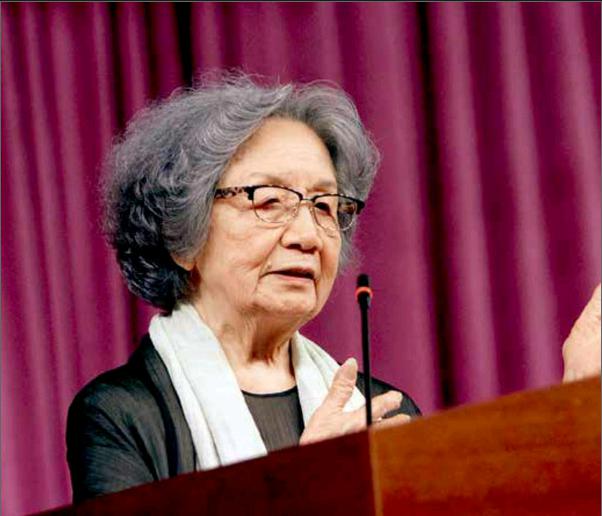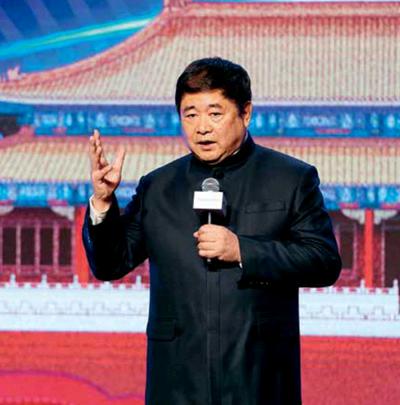Golden Age of the Chinese Cultural Industry
2018-01-22



Over the past several years, the Chinese government has multiplied its efforts to boost cultural prosperity.
All across the country, public cultural facilities have been built into functional cultural landmarks, from the eastern coast to the western border. From central cities to rural areas, cultural services have become basic public resources and conveniences enjoyed by local residents. Public readings, popular art shows, inheritance of intangible cultural heritage, and rich, colorful cultural events have become important facets of daily life.
The year 2017 was highlighted by a variety of cultural phenomena involving museums, sensational TV dramas and movies, mobile gaming, digital reading and paid content.
In 2017, every realm of culture bloomed.
Many cultural variety shows were huge hits in 2017. Cultural programs such as “Chinese Poetry Conference,” “The Reader” and “National Treasure”kept viewers glued to TV screens and social networks. Derivative books remain bestsellers. The beauty of Tang- and Song-Dynasty poems as well as the revivals of several famous literary works ignited the poetic hearts of the Chinese people and gentle memories of literature and history, provoking a strong emotional response, widely.
Pay-for-knowledge has become a new trend and is expected to develop into a growth point of cultural consumption in 2018.
Thanks to the support of mobile payments, internet technology, and consumption upgrading, more and more people are choosing paid selfimprovement via online platforms.
For instance, in September 2017 a valuation of a Peking University professors online lecture at 30 million yuan (US$4.6 million) went viral after making its way on WeChat, one of the most popular social networking platforms in China.
The Himalaya FM knowledge carnivals daily turnover broke 50 million yuan (US$7.6 million). Knowledge sharing platforms such as Fenda, Zhihu Live, and Igetget emerged one after another. The fields of paid content expanded from commercial finance, skills training and other popular areas to more diversified, specific knowledge segments. More and more netizens are willing to pay for knowledge.
Additionally, more and more Chinese film and television products have “gone global,” not only selling at good prices in the international market, but also gaining solid reputations.
For example, overseas publishing rights for Youkus homemade drama Day and Night and iQiyis Tientsin Mystic and Burning Ice have all been bought by Netflix, the largest streaming media platform in the United States, becoming Chinas first group of network television series to be officially broadcast abroad at such a scale. Previously, Netflix had also bought two-year exclusive rights to globally broadcast the Chinese animated film H2O: Mermaid Adventures.endprint
The new year will see a continuation of the rise of Chinas cultural industry, which has become an important economic growth point under the new normal of the country. Integrated development and upgrade of innovation-driven cultural and creative industries has been gradually becoming a national strategy.
In 2018, the cultural industry will be developed with focus on the upgrade of quality and efficiency, and cultural consumption will become a new impetus for Chinas economic transformation. Moreover, culture and capital will cooperate deeper, and culture, science and technology will become more integrated as innovation unfolds. The internet will continue to boost mechanism optimization and upgrades of the cultural industry.
Liu Zhenyun
Man of Letters
In 2017, two of Liu Zhenyuns books, Im Not Pan Jinlian and One Sentence Worth Thousands, were adapted into movies, which won awards at many film festivals around the world. Humorous and sarcastic, his novels discuss topics concerning serious social issues and human nature. His words are funny but acute, sublimely depicting emotions such as desire, perplexity and anxiety. Liu is one of a few Chinese writers to show the ability to excel at both commercial writing and serious literature.
Yeh Chia-ying
Torchbearer of Classical Chinese Literature
Yeh Chia-ying is considered one of the most influential Chinese-origin female scholars of classical Chinese literature: She spent over half of a century teaching it abroad. In March 2017, 93-year-old Yeh attended The Reader, a Chinese culture and literature talk show, which drew big attention from the public. In June, she launched an online class on Douban.com to teach classical poem chanting. Since the early 1950s, Yeh has been engaged in promoting traditional Chinese poems in hopes of passing down this precious cultural legacy.
Gu Ying
Photographer of Wildlife
The only Chinese winner of the 2017 Natures Best Photography Windland Smith Rice Awards, Gu Ying harvested two prizes from the event. Gus footprints can be found across the world. She spent most of the past three years at the South and North Poles as well as the Qinghai-Tibet Plateau, which is considered a third pole. Gu focuses on photographing wild animals especially birds in hopes of arousing public awareness about wildlife protection in those regions.endprint
Sun Yang
Swimming Legend
On July 24, 2017, at the 2017 FINA World Championships in Budapest, Chinese swimmer Sun Yang won the gold medal with his season best time in the mens 400m freestyle and 200m freestyle, breaking his own Asian record. This made Sun the only freestyle swimmer in the world to collect gold medals in 200m, 400m, 800m and 1,500m events at the FINA World Championships.
Shan Jixiang
Gatekeeper of the Palace Museum
On September 15, 2017, an exhibition titled “Bluegreen Landscape Paintings from across Chinese History” attracted a global spotlight to the Palace Museum. Then, on December 3, the cultural variety show National Treasures hit the air, which evoked a great deal more attention. Production of the largescale treasure discovery show was spearheaded by Shan Jixiang, head of the Palace Museum, with joint efforts of eight other prestigious Chinese museums. After Shan took office, he promoted a digital Palace Museum and encouraged his team to produce mobile apps as well as novel cultural products. A Chinese cultural guru, Shan endeavors to inject Chinese cultural essences back into daily life and pass them on to future generations. And he wants to see more Chinese people gain cultural confidence.
Gong Yu
Founder of iQiyi
The overseas publishing rights for Tientsin Mystic and Burning Ice, both iQiyis homegrown drama series, were bought by Netflix, a leading streaming media platform in the United States. Gong Yu, CEO of iQiyi, has the calmness of an engineer and the vision of an entrepreneur. Under his leadership, iQiyi has dominated the competitive Chinese online video market and driven industry trends with technological innovation, content development and business model reform.
Zhu Ting
Star Spiker
In September 2017, the Chinese National Womens Volleyball Team won the FIVB Volleyball World Grand Champions Cup again after a 16-year drought. Team captain Zhu Ting won the Most Valuable Player (MVP) award. Zhu was also honored as the 2017 sportswoman of the year at the CCTV Sports Awards, one of the Top 10 Chinese Athletes of Big Ben Award and one on the Forbes 30 under 30 Asia list. Official media of the International Volleyball Federation (FIVB) praised Zhu as a hard-working genius.endprint